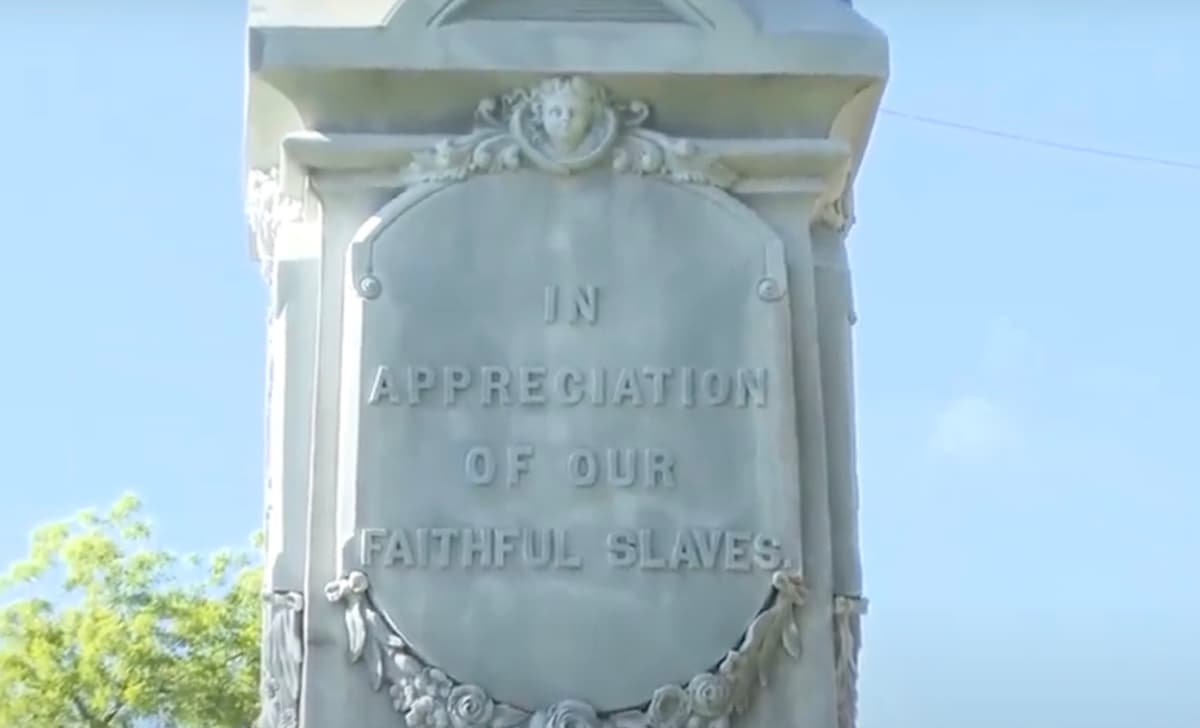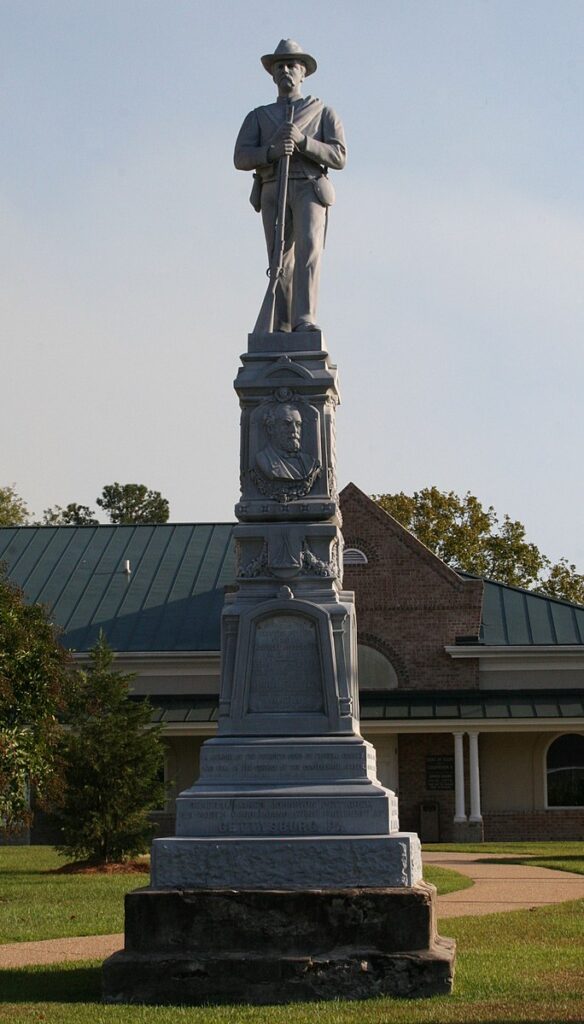Black North Carolinians Sue Over ‘Unsafe’ Confederate Monument Honoring ‘Faithful Slaves,’ Claim They’re Getting ‘Armed Threats’
It’s the latest legal clash in a national debate — especially prevalent in the South after the 2020 killing of George Floyd — over what should be done with symbols of the Confederacy.

Is a monument outside of a county courthouse dedicated in appreciation of “faithful slaves” racially discriminatory and “unsafe” government speech? That is the central question in a legal battle unfolding at Tyrrell County, North Carolina, a coastal county near the Outer Banks that’s dominated by wildlife refuges and is the least populated county in the state.
A group of Black residents argues that the unusual monument, gifted in 1902 to the courthouse by a member of a formerly slave-holding family, expresses government speech that is in violation of the 14th Amendment’s equal protection clause and endangers their safety.
The 23-foot-tall monument is topped by a statue of General James Johnson Pettigrew, a Tyrrell County native who led a failed charge of Cemetery Ridge at Gettysburg and died from his wounds during the retreat. The monument’s pedestal also features a bust of General Lee.

The monument’s most prominent inscription memorializes “the patriotic sons of Tyrrell County who fell in the service of the Confederate States” — proportionally, tiny Tyrrell County suffered terrible losses in the war. Yet there is also an unusual inscription, “In appreciation of our faithful slaves.”
According to the complainants, the offending inscription, honoring slaves who very well could have been alive, and presumably freed, at the time of the monument’s installment, indicates that former slaves “preferred slavery to freedom” and stigmatizes their direct descendants — the plaintiffs — as “innately inferior,” the lawsuit argues.

The monument is believed to be the only one of its kind in America that “espouses an explicitly textually racist message on it,” an attorney representing the citizens, Jaelyn Miller, tells the Sun in an interview.
“Most Confederate monuments are sort of in memoriam to veterans,” she says. “This is very different in that it was explicitly endorsing the institution of slavery. And, to my understanding, this is really, I think, one of the first cases of its kind.”
The lawsuit, filed in a federal court in North Carolina’s Eastern District by Concerned Citizens of Tyrrell County, alleges that the Tyrrell County Board of Commissioners, as the elected officials in the rural county who control the monument and its upkeep, are engaging in an ongoing constitutional equal protection violation.
“The county’s erection and maintenance of the monument communicates, on behalf of local government, the idea that Tyrrell’s institutions regard Black people’s rightful place as one of subservience and obedience,” the filing reads.
The Sun attempted to reach several of the named county commissioners, none of whom immediately responded to a request for comment.
The lawsuit alleges that the commissioners have asserted that they can’t move the statue because of a state law enacted in 2015 that limits the removal of Confederate markers. The state’s supreme court in 2022 ruled that the state ban applied only to monuments “owned by the state.”
What the law means by “owned by the state” — whether the state refers to a government entity or, specifically, the state of North Carolina, is unclear. In the widely publicized case of “Silent Sam” at Chapel Hill, that monument’s owner, the University of North Carolina, cited the state law as a reason it could not remove the monument. Eventually the monument, which was torn down by a student mob in 2018, was removed for safety reasons.
Regarding Tyrrell County’s monument, Ms. Miller argues that because it is county-owned, state law doesn’t apply here. Even if it did, she says, “the federal Constitution trumps any state law.”
The issue of safety, which was used to remove Silent Sam, is also being raised by the plaintiffs at Tyrrell County. They argue that due to their advocacy against the monument, they have been “physically threatened” and have “encountered armed supporters of the monument,” the lawsuit alleges.
“They’ve been working to try to get it removed since the 1990s,” Ms. Miller says of the concerned citizen group. “But over the last four or five years, they’ve really started expending a lot of resources towards this, so they’ve been erecting billboards, having rallies, circulating petitions, they’ve done presentations to the county.”
After going to regular county commissioner meetings with no success, the residents have “exhausted all those resources” and filed the suit as a “last resort,” she adds.
Polling of nearly 1,400 North Carolina residents in 2021 by Elon University indicates that even after the killing of George Floyd — and the subsequent national movement to remove or rename Confederate symbols — a majority of North Carolinians support keeping them on public property. Fifty-eight percent support keeping the monuments on government-owned property, down from 2019, when 65 percent supported keeping the monuments in public areas.
A majority of those surveyed supported offering historical plaques to the monuments to add context. The views of the monuments vary widely by race — with 70 percent of whites supporting keeping them, compared to 25 percent of Black respondents.
When asked what the Tyrrell County Black residents hope will happen to the monument — whether it should be moved to storage, destroyed, or something else — Ms. Miller says their main concern is that it be removed from public land.

